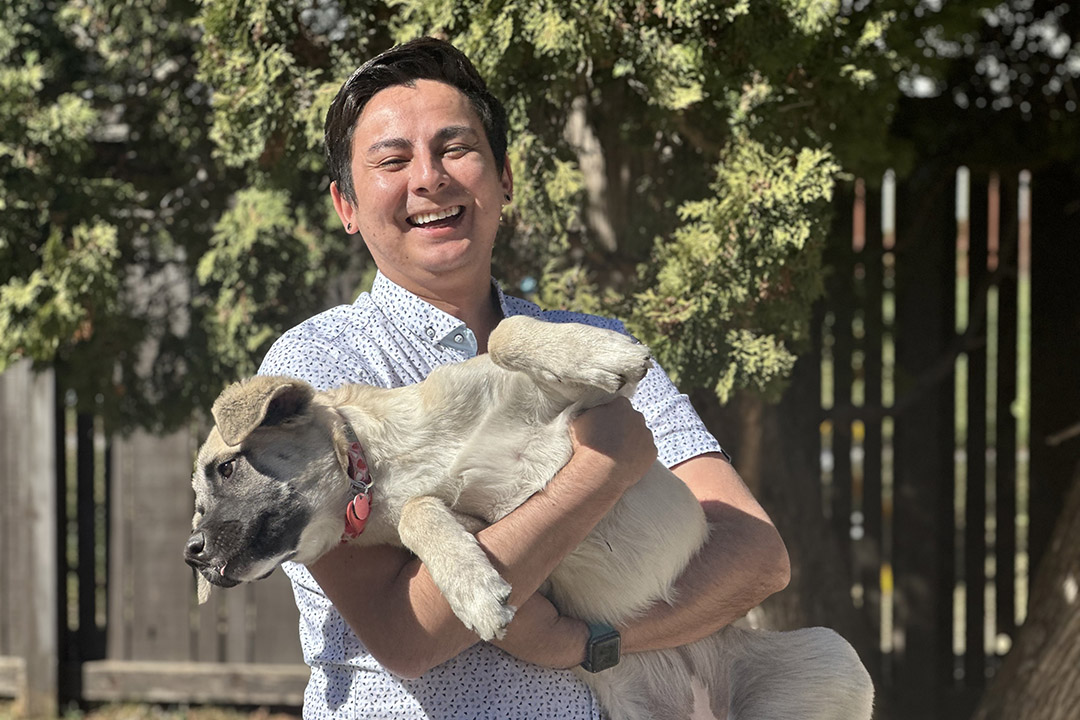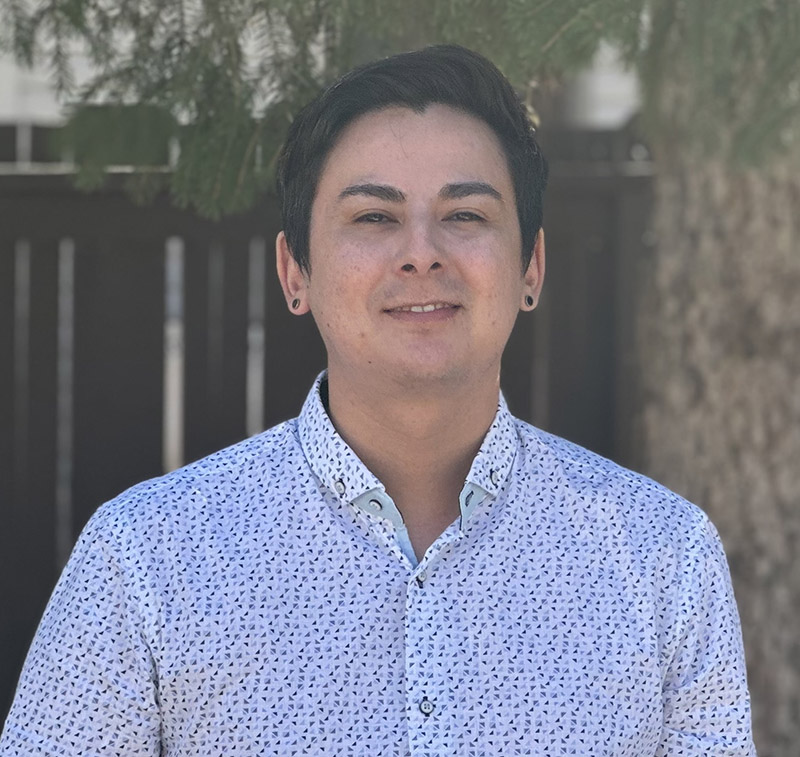
USask Food and Nutrition graduate creates own path
Olaf Olson entered the University of Saskatchewan (USask) as a mature student.
By Brett Makulowich“It’s never too late to pursue a post-secondary education,” said Olaf Olson. “I entered the University of Saskatchewan through mature admission. I was inspired by my mother who became a registered nurse in her late forties.”
Olson is a member of Peter Ballantyne Cree First Nation and grew up on the Southend, Sask., reserve.
“I struggled through finishing high school as a teenager, but I knew I had more potential to show in terms of education,” said Olson. “Growing up as a Two-Spirit person in a religious household wasn’t easy. But I got through the difficult times and now have a wonderful husband. I’m grateful every day for the life we’ve built together.”
Olson will officially receive his Bachelor of Science in Food and Nutrition at USask Spring Convocation on June 4.
The BSc in Food and Nutrition is offered by the USask College of Agriculture and Bioresources (AgBio). This degree program meets the growing industry need for graduates with interdisciplinary training in both food science and nutrition. Students take AgBio classes as well as classes offered by the USask College of Pharmacy and Nutrition.
“My interest in food microbiology was ignited by a group project about bacteria and mold in ice-making machines,” said Olson.
The project was for the FABS 325.3 Food Microbiology course taught by Dr. Adrienne Woytowich (PhD). The students tested three ice-making machines for mold and bacteria by using an MPN test (Most Probable Number – a method for estimating the number of bacteria in a food or water sample) and a Millipore filtration test.
“After seeing the results, I cleaned the heck out of my countertop ice machine!”

This is just one of many unique learning experiences students have in the Food and Nutrition degree program. Students build knowledge in food chemistry, food processing, and other related areas along with foundational knowledge of food nutrition and the role that nutrients play in human health.
“I chose the University of Saskatchewan for my education because it has a lot of opportunities for students, and I found that to be true in all of the classes I had,” said Olson. “The professors I’ve had care about their students and are some of the most passionate researchers in their fields of study.”
These opportunities extended outside the classroom and included Olson working as an agricultural intern with the CHEP GoodFood Askîy Project. For this internship, Olson learned how to plant, maintain, harvest and sell food using sustainable techniques in a community garden located in the Riversdale neighbourhood of Saskatoon. He also worked as a treaty land entitlement and specific claims intern with Saskatchewan Aboriginal Land Technicians (SALT).
Olson completed his first year of studies at the USask Prince Albert campus before transferring to the Saskatoon campus.
“I was already living in Prince Albert at the time, and it was great to have access to the University of Saskatchewan while living in a place that I was familiar with,” said Olson. “I moved to Saskatoon after my first year of university. At the time, Saskatoon was sort of a daunting place for me to move to because I had never lived in a bigger city like that before. Now it seems so small.”
“If you’re considering pursuing post-secondary, you’ll have times where you’ll struggle but don’t be afraid to reach out if you need help,” said Olson. “You’ll be surprised how many people are rooting for your success.”
In the future, Olson is interested in pursuing a safety and quality assurance role in a food processing facility as well as careers in food inspection and food product development. He would also like to continue to work with First Nations communities and possibly pursue a graduate degree.
“Indigenous people are so resilient and have so many strengths that we need to take up space in all areas to have our voices present at the table,” said Olson. “It always makes me happy to see other Indigenous folks from different backgrounds pursuing a post-secondary education.”
Together we will support and inspire students to succeed. We invite you to join by supporting current and future students' needs at USask.

